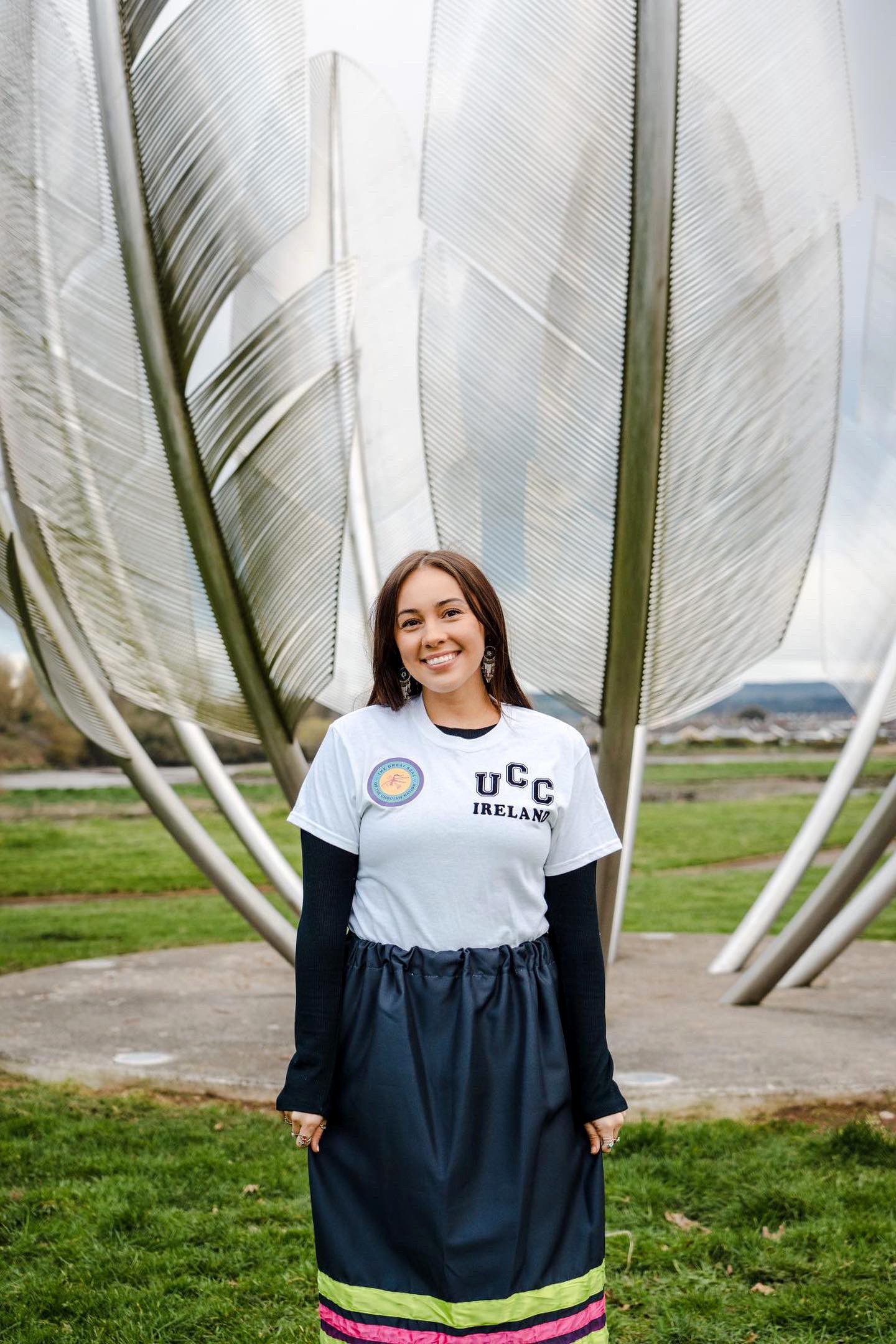| Code | MAAP |
|---|---|
| Duration | 1 Year Full-time |
| Teaching Mode | Full-time |
| Qualifications | MA |
| NFQ Level | Level 9 |
| EU Fees | €8,400 See Fees and Costs for full details. |
| Non-EU Fees | €23,500 |
| Closing Date | 4 March 2026 |
| Non-EU Closing Date | 4 March 2026 |
| Start Date | 7 September 2026 |
Course Outline
Our MA in Applied Psychology gives you an advanced understanding of the discipline of psychology in applied settings. The course is designed to help you appreciate the potential and values of applied psychology, think critically about psychological theory and practice, and give you the opportunity to explore your own particular interests.
Applied psychologists use research and theory to analyse real-world situations, develop appropriate interventions, and evaluate outcomes. The course has strong links with community-based partners working with children, families, and communities. The course will enable you to pursue postgraduate professional training opportunities and to pursue a variety of career paths where psychological expertise is needed.
Modules (90 credits)
Part I (60 credits)
Core Modules
AP6023 Psychological Assessment (5 credits)
AP6060 Advanced Issues in Quantitative Research Methods (5 credits)
AP6061 Qualitative Research Methods and Data Analysis (5 credits)
AP6138 Critical Community Psychology (10 credits)
AP6174 Clinical Presentations (Child, Adolescent, Adult, and ID) (10 credits)
AP6122 Psychological Principles and Skills in Working with Children and Families (10 credits)
AP6185 Service Design and Evaluation (15 credits)
Part II (30 credits)
Core Modules
AP6137 Dissertation in Applied Psychology 1 (30 credits)
Postgraduate Diploma in Applied Psychology (NFQ Level 9, Major Award)
Students who have completed and passed modules to the value of at least 60 credits in Part I and who do not wish to proceed to Part II may opt to exit the programme and be awarded a Postgraduate Diploma in Applied Psychology.
Academic Programme Catalogue
See the Academic Programme Catalogue where you can search for the complete and up-to-date content for this course. Note that the modules for all courses are subject to change from year to year. For complete descriptions of individual modules, see the Book of Modules.
Course Practicalities
This is a one-year full-time course. Lectures take place on Monday-Fridays.
Work Integrated Learning (WIL) which is a form of student learning involving external, community-based partners, is embedded as a core component of the MA Applied Psychology programme.
Assessment
A variety of assessment methods are incorporated into the MA. These include essays, research funding applications, portfolios, reports, class tests, research proposals, journal of learning, class presentations, research thesis, and taped practice work with transcript and analysis.
Who teaches this course
The MA in Applied Psychology is delivered by staff from the School of Applied Psychology. Contributions are also made from other professional/voluntary bodies where appropriate.
Why Choose This Course
The particular strength of this course lies in its applied ethos. Our MA graduates have found their engagement with external partner organisations through the programme to be particularly beneficial in supporting their successful application to specific professional education courses in psychology.
Work-Integrated Learning
Applied Psychological Research Dissertation
Dissertation supervision is managed by a number of faculty associated with this MA programme, but also other MA programmes in our Schools. This ensures that our students have access, via our faculty, to different areas of expertise and knowledge of different professional domains (e.g., social justice, mental health/healthcare, positive psychology, child and family psychology, etc.). The MA Applied Psychology is also of interest to students interested in pursuing research careers through progressing to doctoral studies in their area of interest. Our School offers both funded and self-funded PhD opportunities.
Skills and Careers Information
- The ability to critically appraise psychological research and practice in a range of settings;
- Advanced knowledge of the professional and ethical issues that may arise in the application of psychology, and in service design and evaluation;
- Competence in establishing and maintaining effective working relationships with colleagues;
- Skills in planning and implementing an effective research course
Further competencies developed through this course include interview, assessment, communication, and presentation skills.
Requirements
Applicants must:
1. Hold a Second Class Honours Grade 1 in a primary honours degree (NFQ, Level 8) in Psychology.
2. Satisfy the eligibility requirements for graduate membership of either the Psychological Society of Ireland (PSI) or the British Psychological Society (BPS). This must be demonstrated by the applicant by providing evidence that your undergraduate degree/qualification(s) is accredited by the PSI or by the BPS. Applicants whose undergraduate degree/qualification(s) is not listed as an accredited qualification by either the PSI or the BPS are required to provide evidence from the PSI or the BPS that they (the PSI or the BPS) consider your undergraduate degree/qualification(s) to be equivalent to the PSI/BPS degree, in terms of granting you eligibility for graduate membership of the society. This evidence must be sought by the applicant by applying directly to either the PSI or BPS for graduate membership as appropriate.
3. Provide an academic reference. Once you have submitted your online application you will be requested to provide the name and email address of 1 academic referee. A communication will issue immediately from UCC to your referee requesting the that they submit a reference directly to UCC.
4. Supply statements detailing:
A research proposal must include details that would ordinarily be contained within an abstract. Your research proposal is very important for your application as it demonstrates your potential to undertake and successfully complete a research dissertation. The research proposal requires significant detail and must include: a research topic and demonstrate your ability to identify a research problem and design a study to address it; an average word count of ~500 is expected.
Motivation and readiness, which should include information on:
- Your understanding of what applied psychology entails
- Reasons for applying to the course and how your reasons fit with your experience and career objectives.
Consideration under Recognition of Prior Learning (RPL) may also be given to applicants who do not meet the minimum academic entry requirements as stated above but who present with a Second Class Honours Grade 2 in a primary honours degree (NFQ, Level 8) in Psychology and have significant and directly relevant work experience or has performed impressively in a relevant Master's degree acceptable to the School selection committee. In such cases, the applicant must clearly set out the grounds upon which they wish to be considered in the motivation and readiness statement.
Applicants may be interviewed and will be selected based on the following:
- academic performance,
- evidence of research capacity,
- academic reference,
- commitment to the area of applied psychology
Please note that:
If you are in the process of completing your undergraduate degree in Psychology or a conversion/Masters degree you must be in receipt of your final results (whether undergraduate or postgraduate) before 31st July.
International Applicants
To be considered for an offer, you must provide all the required documents at the time of application. Follow these steps before applying:
- Check the entry requirements: You must meet the required entry academic grade, equivalent to Irish requirements. For more information see our Qualification Comparison page.
- Prepare supporting documents as outlined in the Requirements Section of this course page. Pay close attention to the guidance on the information that should be included in the motivation statement.
- Accreditation: You must satisfy the eligibility requirements for graduate membership of either the Psychological Society of Ireland (PSI) or the British Psychological Society (BPS). Accreditation applications are reviewed every 6-8 weeks.
- Only then start the application by clicking on the Apply Now button.
For Applicants with Qualifications Completed Outside of Ireland
Applicants must meet the required entry academic grade, equivalent to Irish requirements. For more information see our Qualification Comparison page.
International/Non-EU Applicants
For full details of the non-EU application procedure visit our how to apply pages for international students.
- In UCC, we use the term programme and course interchangeably to describe what a person has registered to study in UCC and its constituent colleges, schools, and departments.
- Note that not all courses are open to international/non-EU applicants, please check the fact file above. For more information contact the International Office.
English Language Requirements
Applicants who are non-native speakers of the English language must meet the university-approved English language requirements. Visit our PG English Language Requirements page for more information.
Fees and Costs
The EU fee for this course is €8,400.
The Non-EU fee for this course is €23,500.
Postgraduate EU and International Fees 2026/2027
See our Postgraduate EU and Non-EU (International) Fee Schedule for the latest information.
Deposits
If your course requires a deposit, please note that booking fees and deposits are non-refundable in all cases.
How can I pay?
See different options on our How Do I Pay My Fees? page.
Any questions? See the 'Contact Us' section on the Fees Office page.
How To Apply
1. Check dates
Check the opening and closing dates for the application process in the yellow fact file boxes at the top of this webpage. The UCC online application portal usually opens around mid October.
2. Gather documents
Scanned copies of supporting documents have to be uploaded to the UCC online application portal and include:
- Original qualification documents listed on your application, including transcripts of results from institutions other than UCC.
- Any supplementary items requested for your course, if required.
3. Apply online
Apply online by clicking the blue 'Apply Now' button below. Note most of our courses have a non-refundable €50 application fee.
Any questions? Use our web enquiry form to contact us.
Deferrals
Deferrals are not permitted on this programme.
The closing date for non-EU applications is 4 March 2026
Apply Now

